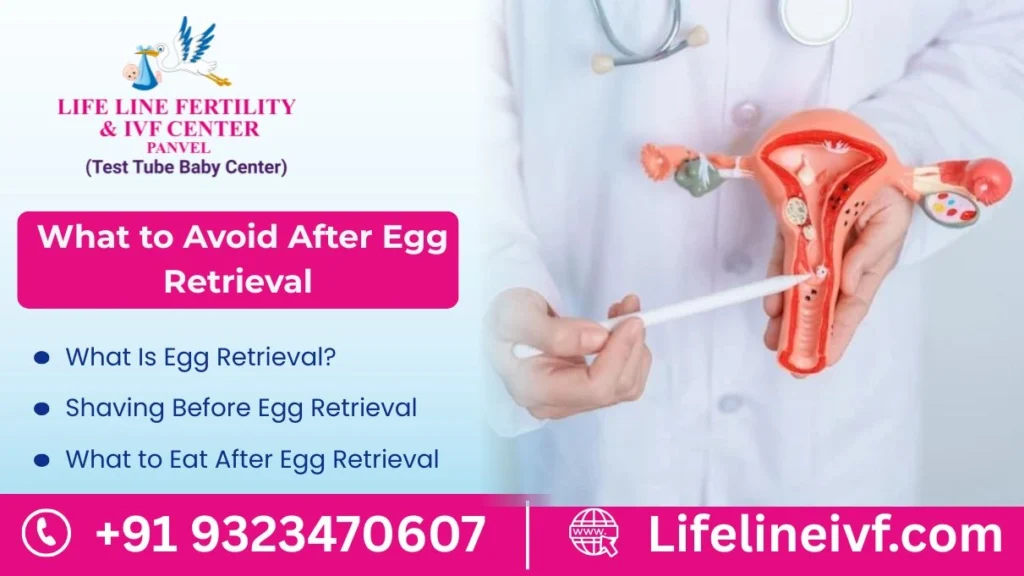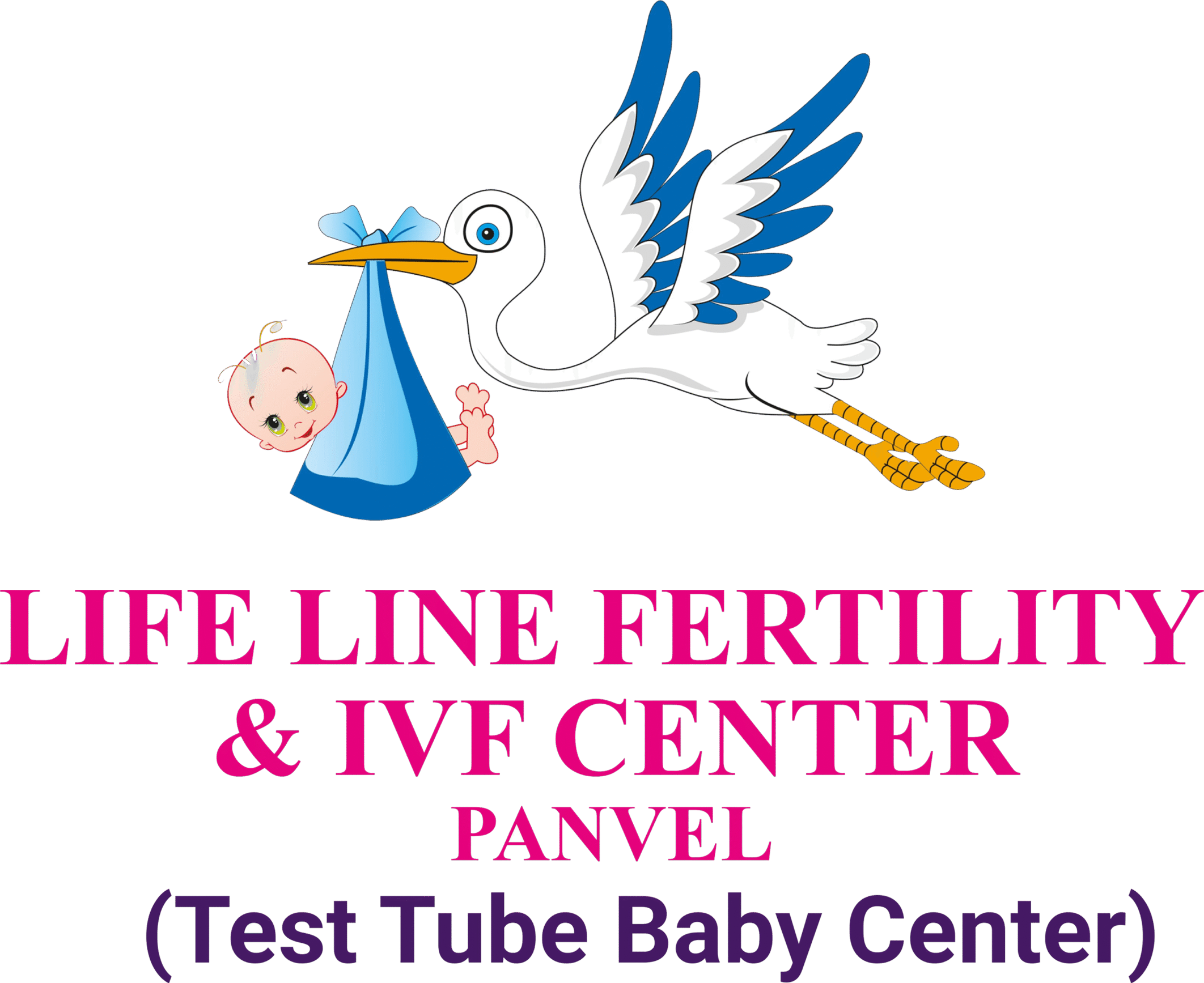What to Avoid After Egg Retrieval: Complete Recovery and Care Guide

Blog What to Avoid After Egg Retrieval: Complete Recovery and Care Guide What Is Egg Retrieval? Egg retrieval is a vital part of the IVF (In Vitro Fertilization) process. It involves collecting mature eggs from a woman’s ovaries so they can later be fertilized in a laboratory. During this short, painless procedure, a fertility specialist uses ultrasound guidance and a thin needle to gently remove eggs from the ovarian follicles. It’s performed under mild sedation or anesthesia, ensuring comfort and safety. The purpose of egg retrieval is to collect mature, healthy eggs that can be fertilized to create embryos for IVF or stored for future fertility preservation. Ovarian Stimulation Before Egg Retrieval Medications Used During Stimulation: Patients typically take FSH (Follicle-Stimulating Hormone) and LH (Luteinizing Hormone) injections to help follicles grow. Later, an hCG “trigger shot” is given to mature the eggs before retrieval. Monitoring the Ovaries: Ultrasound scans and blood tests are done frequently to monitor follicle size and hormone levels. Once they reach maturity, the retrieval is scheduled 34–36 hours after the trigger shot. Common Sensations: Some patients experience mild bloating or mood changes during stimulation due to hormonal shifts, which usually subside after the procedure. Before egg retrieval, ovarian stimulation is carried out to encourage multiple eggs to mature simultaneously. Do’s and Don’ts Before Egg Retrieval Do’s Eat a balanced diet rich in protein and vegetables. Drink plenty of water to stay hydrated. Get enough rest the night before. Take your medications as prescribed. Don’ts Avoid alcohol, caffeine, and smoking. Don’t skip your hormone injections. Avoid perfumes or body lotions before your procedure. Don’t engage in heavy physical activity before retrieval. Proper preparation helps your body respond better and supports a smooth retrieval process. What to Do the Night Before Egg Retrieval The evening before your retrieval, prioritize relaxation and mental calm. Have a light meal such as soup, salad, or steamed vegetables. Avoid caffeine, fried, or spicy food that can cause discomfort. You’ll likely be asked to fast for at least 8 hours before the procedure. Spend time relaxing—deep breathing, meditation, or light reading can help ease anxiety and prepare you mentally. Shaving Before Egg Retrieval It’s not mandatory to shave or wax before the procedure unless advised by your clinic. Hygiene is more important than hair removal. If you prefer shaving, do it gently the day before to avoid irritation or nicks. Keeping the area clean and dry ensures comfort during the procedure. What to Avoid After Egg Retrieval After egg retrieval, your body needs time to rest and recover. Knowing what to avoid after egg retrieval helps prevent complications and supports healing. Avoid Strenuous Physical Activity: Refrain from running, gym workouts, or lifting heavy objects for at least 3–5 days. Strain can cause ovarian torsion, a painful twisting of the ovary. Avoid Sexual Intercourse: Avoid intercourse for about a week or until your doctor approves. The ovaries remain enlarged, and sexual activity can worsen discomfort or lead to injury. Avoid Swimming, Hot Baths, or Pools: For at least 5–7 days, avoid swimming or soaking in hot tubs to reduce the risk of infection. Opt for quick showers instead. Avoid Unprescribed Painkillers: Only take medicines recommended by your fertility specialist. Some over-the-counter painkillers may interfere with hormonal recovery. Avoid Junk Food and Excess Caffeine: Focus on balanced meals and stay away from processed, salty, or sugary foods that may worsen bloating. Avoid Skipping Prescribed Medication: Follow your doctor’s post-procedure instructions closely—antibiotics, progesterone, or supplements help support early recovery. What to Eat After Egg Retrieval Diet plays a big role in how quickly you recover from egg retrieval. Eat Protein-Rich Foods: Include eggs, tofu, chicken, and lentils. Protein helps repair tissues and maintain energy levels. Eat Iron and Fiber-Rich Foods: Leafy greens, beans, and whole grains prevent constipation and replace nutrients lost during the procedure. Hydration Tips: Drink at least 8–10 glasses of water daily. Coconut water and soups help reduce bloating and keep your hormones balanced. Need expert guidance to ensure a smooth recovery after egg retrieval? Book An Appointment The Period After Egg Retrieval A light period or spotting is normal after egg retrieval. This occurs because of hormonal changes and the small punctures made during the procedure. If bleeding becomes heavy or lasts beyond a few days, contact your fertility specialist to rule out ovarian hyperstimulation or infection. Heavy Period After Egg Retrieval Possible Reasons for Heavy Bleeding Hormonal changes after ovarian stimulation Small bleeding from follicle punctures Ovarian hyperstimulation syndrome (OHSS) If the flow is unusually heavy or accompanied by severe pain, consult your fertility doctor immediately. Common Symptoms After Egg Retrieval You may experience mild bloating, cramping, or fatigue after egg retrieval. These are normal and subside within 1–3 days. If you develop fever, severe pain, vomiting, or dizziness, contact your doctor as these may indicate complications. Can You Work After Egg Retrieval? Most patients can return to light work within 2–3 days. However, if your job involves standing for long periods or physical activity, take a few extra rest days. Allow your body time to heal fully before resuming your normal schedule. Is IVF Egg Retrieval Dangerous? Egg retrieval is generally safe when performed by skilled fertility specialists using advanced techniques. Rare Complications Include Infection or bleeding Ovarian hyperstimulation syndrome Allergic reaction to anesthesia These risks are minimal under experienced medical care and proper hygiene. How Long Does It Take to Recover After Egg Retrieval? Recovery takes about 1–3 days for most patients. Avoid intense activity until your follow-up visit.Your fertility team will guide you on when it’s safe to resume exercise or sexual activity based on your condition. When to Contact Your Doctor After Egg Retrieval Seek immediate medical advice if you experience: Fever above 100.4°F (38°C) Severe abdominal pain or swelling Heavy or prolonged bleeding Difficulty breathing Foul-smelling discharge These may signal infection or OHSS and should not be ignored. Why Choose Lifeline IVF Panvel? At Lifeline IVF Panvel, patients receive advanced, compassionate fertility care tailored to
